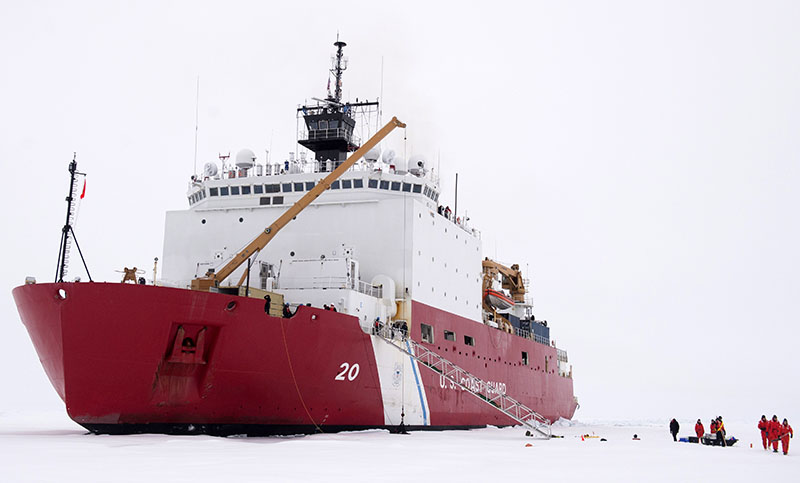The U.S. Senate added $1 billion to the 2017 Defense Appropriations Bill to fully fund construction of the first American polar icebreaker in a quarter-century, following a year of bipartisan momentum for rebuilding maritime power in the high latitudes.
A May 24 vote by the Senate defense subcommittee “was the first tangible demonstration that we are committed to fulfilling the responsibilities associated with our strategic geography,” said Sen. Lisa Murkowski, R-Alaska.
On the House of Representatives side, Rep. Duncan Hunter, R-California, who chairs the Coast Guard subcommittee, has sought to recruit the Navy into helping design and fund the icebreaker project. The thinking is the Navy could use its shipbuilding program money to start the first heavy icebreaker as a noncombatant vessel and later transfer it to the Coast Guard.
“Without increased investment, we will face the unacceptable reality of ceding the Arctic to other nations,” Hunter wrote in a May 16 letter to Sean Stackley, the assistant Navy secretary for research, development and acquisition.
The Coast Guard leadership says it needs at least three heavy and three medium icebreakers to fulfill its missions in the Arctic and Antarctic, ranging from scientific support and maintaining seaway access to search and rescue. The service is down to two ships: the 420’x82’x29’ medium-duty Healy, launched in 1997, and the 399’x83’6”x28’ heavy Polar Star, built in1976. A sister ship, Polar Sea, is laid up in Seattle, and a source of spare parts to keep the Polar Star operating.
Noting a new icebreaker cannot be deployed before 2025 under present timelines – and the danger of a major mechanical breakdown of the Polar Star in the meantime – Hunter asked what the effect on Navy operations could be, and how the Navy could “support the incorporation of additional capabilities before 2025,” even by obtaining an icebreaker through lease or service contract.
With the Arctic in particular opening to new shipping during ice-free seasons – including the 820’x106’x25’ Crystal Serenity luxury cruise, planned with 1,700 passengers for this summer – advocates say it is critical to speed up design and construction of the next generation polar ships.




